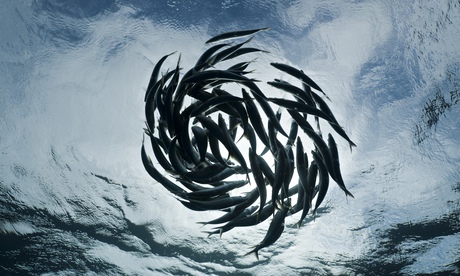
I do love to be beside the seaside, but I am finding it increasingly hard to look the ocean in the eye. Over the past four decades we have killed off 50% of marine life through overfishing, habitat destruction and climate change. We shovel 250,000 tonnes of plastic into the ocean every year, and all Pacific tropical reefs could be lost by 2050. The blue planet gets short shrift; while we’ve protected 15.4% of terrestrial ecosystems, just 3.4% of the world’s oceans are marine protected areas.
Land lubbers need to make a splash as ocean conservationists to push these numbers up. We should take a cue from earlier campaigns. In the 60s, a stretch of Australian coastal shelf was slated to become a limestone quarry. If it hadn’t been for a few campaigning environmentalists, it would have been lost forever. Today the site is known as the Great Barrier Reef.
But things are looking up. The world’s water was recently awarded its own sustainable development goal. Meanwhile the international spotlight comes to these shores from 11 to 14 October, when the Global Waves Conference lands in Cornwall. It brings together all kinds of ocean agitators, from top-flight marine scientists to eco designers, anti-plastic campaigners, coastal policy makers and surfers.

Yes, I said surfers. If your understanding of this tribe is based on the stoner/slacker model, it’s time to recalibrate. Surfonomics, devised by world-champion surfer and economist Chad Nelsen, puts a value on waves in the name of conservation. It’s a powerful tool. From gas exploration to tuna ranching, the oceans are increasingly regarded as providing the next source of global development. Surfonomics is a reminder that ocean riches are found in healthy, living seas.
The big picture: Bonn climate talks
Wherever there’s a global climate summit or protest, you’ll find photographer Robert van Waarden. He tells the story of people mobilising for climate justice alongside his work documenting battles against fossil fuel, as with the 2014 series Along the Pipeline. He shifts his lens, and our understanding, away from clichéd environmental images like polar bears and on to people helping to humanise climate policy. That is no mean feat.
If you have an ethical dilemma, email Lucy at lucy.siegle@observer.co.uk
Follow Lucy on Twitter @lucysiegle







